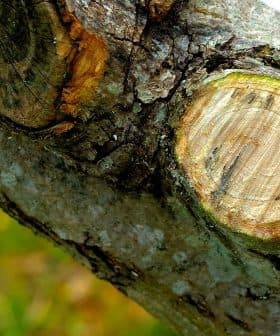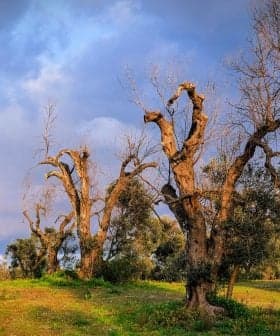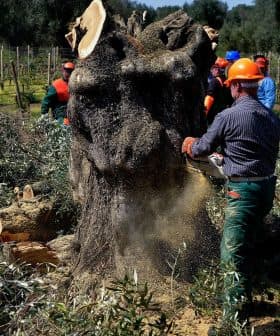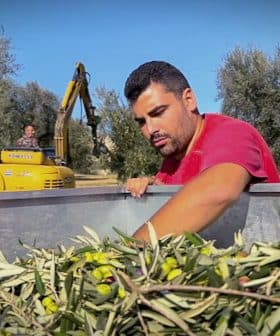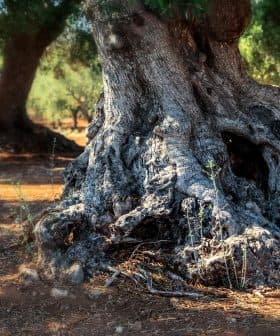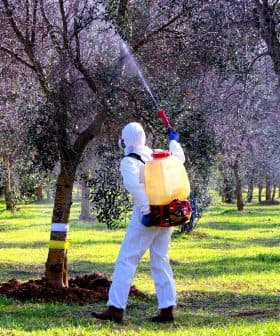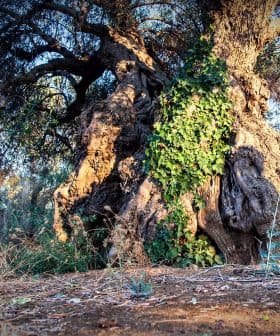Bari Meeting on Xylella Lays Down Joint Action Plan
The International Olive Council and the International Center for Advanced Mediterranean Agronomic Studies organized a seminar with the goal of consolidating a common action plan against Xf.
The CIHEAM hosted an international meeting in Bari on combating Xylella fastidiosa to protect olive trees and international trade, with participants from sixteen countries and various international organizations discussing the need for collaboration to address this threat to the olive sector. The meeting emphasized the importance of research, training, harmonized standards, and capacity building in preventing the spread of the bacterium, with plans to develop a common action plan and continue collaboration at the World Olive Forum in Marrakech.
The Italian seat of the International Center for Advanced Mediterranean Agronomic Studies (CIHEAM) hosted an international meeting on “Integrated actions against Xylella fastidiosa (Xf) to protect olive trees and international trade” last month.
Bari welcomed about one hundred participants, among whom were representatives from sixteen International Olive Council (IOC) members and non-members countries including Albania, Algeria, Egypt, France, Greece, Iran, Italy, Jordan, Lebanon, Libya, Montenegro, Morocco, Palestine, Portugal, Spain, Tunisia, and Turkey.
See Also:Can Xylella Be Stopped?
Experts from the international organizations FAO, IPPC (International Plant Protection Convention), EPPO (European Plant Protection Organization), EFSA (European Food Safety Authority), and researchers from CNR and universities took part in the seminar with the aim to create “the basis for coordinating and planning collaborations” against Xylella fastidiosa, through practical actions favored by “the exchange of human resources” between the participating countries.
At the start of the conference, CIHEAM and IOC experts pointed out how crops are becoming increasingly vulnerable to pests and diseases in a context marked by trade intensification, acceleration of the mobility of populations and goods, and climate change.
Therefore, prevention and control of plant diseases, epidemiological surveillance and plant health information exchanges outside of each country’s borders are becoming more essential than ever for domestic production, export and import.
The presentation of the current status of the bacterium was followed by reports on the activities of international organizations, the results of research work carried out in the framework of the EU Horizon 2020, POnTE and XF-Actors, and the needs and recommendations expressed by the member countries. Then, a meeting between EPPO, FAO, CIHEAM and IOC were organized in order to define a strategy for collaboration between these bodies and the identification of the role of each, including the IPPC. The group agreed to draw up a roadmap on a common action plan (PAC-XF), whose first draft will be submitted for an opinion by January 15.
“Collaboration with research institutions and the academic world is essential to counteract the disastrous effects of Xylella fastidiosa,” affirmed the head of Technical and Environmental Unit of the IOC, Abdelkrim Adi. “One of our objectives through the organization of this event is to find the practical way to facilitate the international trade of healthy olive plants, free from any pathogen including verticillium and Xf.”
The executive director of the IOC, Abdellatif Ghedira remarked that the participation of many organizations was the expression of their commitment to finding solutions, and that their joint collaboration would surely result in fruitful actions in the benefit of the olive sector. “There is one aspect which we must not underestimate in this action and that is the international cooperation established between the various intergovernmental bodies: COI, FAO, CIHEAM, and the IPPC and EPPO agencies,” Ghedira observed, adding that “we must intensify our efforts so that information sharing is as rich and complete as possible, in order to consolidate the climate of institutional cooperation and make common cause on this issue.”
After presentations by experts, participant countries were invited to express their needs and challenges in preventing and fighting the spread of the bacterium.
During the talk, it was highlighted that political commitment is needed in order save the way of life of olive producers. It was also stated that the involvement of farmers is fundamental, and that training, dissemination of information and research are essential for the circulation of information.
The need to implement harmonized standards, particularly on quarantine and surveillance as well as on plant certification, along with the need of capacity building were seen as major concerns by participants. They stressed the importance of intensifying research on variety resistance and vector control, and they were all agreed on the usefulness of maintaining germplasm banks as the source of olive variability and research material on the resistance to bacteria. The dissemination of agronomic techniques for the prevention of the disease was also indicated as one of the most important activities to be developed.
During a discussion on the action plan to be developed by IOC, CIHEAM, FAO, EPPO and IPPC, it was pointed out the need to adopt well-defined control standards, as well as to implement capacity building activities for country staffs. It was highlighted that the security of the vegetal material production should be ensured by its authentication and sanitation, and that the labor that is being developed on variety resistance is fundamental. Moreover, the development of practical phytosanitary management guides was considered necessary.
The experts remarked that it is of primary importance to implement plant material traceability and certification, and to develop surveillance programs, as well as to increase awareness in the olive industry by enhancing communication. It was then agreed that all the institutions involved would participate in the World Olive Forum that will be organized in Marrakech, jointly with the IOC session of Members, to celebrate the IOC’s 60th anniversary and present their specific activities in the context of the joint action plan.
During the seminar, the regional phytosanitary service of Tuscany announced that in the southern part of the region, forty-one ornamental plants including almond trees, broom, myrtle-leaf milkwort, calicotome, rosemary, lavender, cistus, and elaeagnus, probably imported from abroad, were found to be positive to the subspecies Multiplex of the bacterium.
The phytosanitary measures of eradication provided by national and EU legislation were immediately applied. Repeated analyses have not revealed any infection in olive trees, as this subspecies, which is already present in Spain and France, is usually not harmful to these plants nor to grape vines.
According to current studies, the only bacterial strain associated with the so-called olive quick decline syndrome (OQDS) detected in Puglia is the one belonging to the sequence type ST53, also known as CoDiRO strain, within Xf subspecies pauca.


